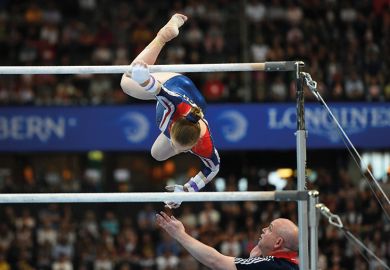The popularity of esports, in which computer gamers battle online, often in major global competitions watched by millions, has grown rapidly in the past decade.
But apart from a scattering of courses studying esports and reports of some scholarships for gamers, its relevance to higher education might seem trivial beyond its potential to distract students from their work.
However, according to the latest edition of an annual report into new developments in pedagogy, the esports community could have inadvertently hit on a teaching and learning model for university education.
This is because the way gamers use live video streaming to share techniques and strategies offers a potentially powerful way for students to engage with degree content, either through lecturers or each other, suggests the Innovating Pedagogy 2020 report, published on 9 January.
“Esports can not only be a fun activity to support learning in content areas, such as sport and PE, but also a pedagogical basis for supporting digital literacy, socialisation and teamwork,” says the report, produced by academics at the UK’s Open University and the Republic of Ireland’s Dublin City University.
It points in particular to the video streaming platform Twitch – used predominantly by gamers to broadcast live sessions playing popular titles such as Fortnite – as already moving in this direction with spaces where users can learn about anything from coding to cooking.
“There is much more to this online platform than just streaming video game tutorials. It also acts as a site for amateur online instruction, delivery, the emergence of online communities, socialisation and participation,” the report says.
Julia Sargent, a lecturer in the OU’s Institute of Education Technology, said such a model of learning differed from massive open online courses (Moocs) not only in its “informal” and “organic” nature, but also in allowing learners to discuss topics in real time via the chat functions that run alongside video streaming.
“I think sometimes gaming can be seen as quite an isolated activity, but one thing about the esports arena [is that it] is [often] about social gaming…it is about that collaborative activity,” she said, something “that can be harnessed within teaching and learning”.
Other trends highlighted in the report include the usefulness of open data as a teaching resource and the growing ability to use animations to communicate concepts. But the ongoing challenges raised by artificial intelligence are seen as having some of the biggest impacts.
The report’s lead author, Agnes Kululska-Hulme, professor of learning technology and communication at the IET, said: “It has become something that every educated person needs to understand…and I think you do that by building it into all subjects because I think all disciplines are going to be affected [by AI], if they aren’t already.”
POSTSCRIPT:
Print headline: Esports play shows way to engage students
Register to continue
Why register?
- Registration is free and only takes a moment
- Once registered, you can read 3 articles a month
- Sign up for our newsletter
Subscribe
Or subscribe for unlimited access to:
- Unlimited access to news, views, insights & reviews
- Digital editions
- Digital access to THE’s university and college rankings analysis
Already registered or a current subscriber?








